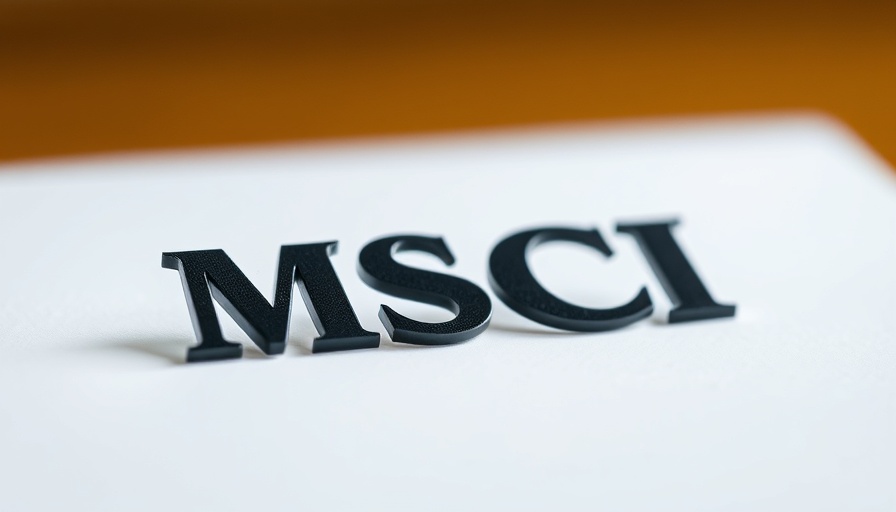
Improving Short-Selling in South Korea: A Step Towards Developed Market Status
In a recent announcement, MSCI (Morgan Stanley Capital International) revealed that short-selling accessibility in South Korea has significantly improved, marking a critical shift in the country’s stock market landscape. As the potential for a market classification upgrade looms, investors are keenly observing what this could mean for South Korea's market evolution.
Transforming Market Dynamics
South Korea has long been categorized as an emerging market by MSCI, despite a variety of economic metrics suggesting its status as a developed economy. The lifting of a five-year market-wide ban on short-selling stocks earlier this year was pivotal. This ban had been a sticking point for foreign investors and MSCI, leading to concerns over market access. By removing these restrictions, South Korea not only increases its attractiveness to international investors but also its chances of being moved to a 'developed market' classification.
The Role of Short Selling in Market Accessibility
Short-selling is an essential mechanism for a fluid and resilient stock market. It allows investors to bet against stocks that are expected to decline, providing liquidity and price discovery. This practice can also serve as an important risk management tool for portfolio diversification. For investors focusing on investment strategies, the ability to short sell means having more options to hedge their investments effectively.
Potential Changes to Investment Strategies
The MSCI upgrade could lead to substantial changes in investment strategies both for international investors and the local market. Notably, larger institutional investors often have predetermined criteria for inclusion in their portfolios, favoring developed markets over emerging ones. Should South Korea secure a spot on the watchlist for an upgrade, we can expect an influx of capital, which could benefit domestic industries and boost stock prices in various sectors, including tech and healthcare.
International Comparisons: Learning from Global Markets
When comparing South Korea to other emerging markets, it's essential to recognize that its infrastructure and technological advancements place it ahead of many peers. Countries like Taiwan and Israel have seen similar upgrades, primarily driven by enhanced market transparency and accessibility. This parallel showcases that South Korea has the potential to not only meet but exceed the criteria required by MSCI for developed status. An increase in foreign investments could also lead to rising trends in sectors such as ETF investing and mutual funds.
Future Trends in the South Korean Market
Looking forward, the prospects for South Korea's stock market appear promising, especially with the global focus shifting towards dynamic and technologically advanced markets. As ESG (Environmental, Social, and Governance) investing continues to gain traction, South Korean companies that prioritize sustainable practices could stand to benefit significantly. This can lead to a broader acceptance of sustainability as an investment strategy among international investors seeking to align their investments with ethical considerations.
Risks and Considerations Ahead
While the improvements in short-selling accessibility are noteworthy, challenges remain. Investors need to be aware of potential market volatility, especially in a transitioning market. Short-selling can exacerbate downward trends if not managed correctly, making risk management practices essential for anyone looking to explore short positions.
Conclusion: A Market on the Cusp of Change
In conclusion, improvements in short-selling accessibility in South Korea pave the way for greater foreign investment and a potential upgrade to developed market status. This evolution presents unique opportunities and challenges, emphasizing the importance of informed investing. As South Korea positions itself favorably in the global market, investors must stay attuned to new developments and incorporate these changes into their broader investment strategies.
 Add Row
Add Row  Add
Add 



Write A Comment